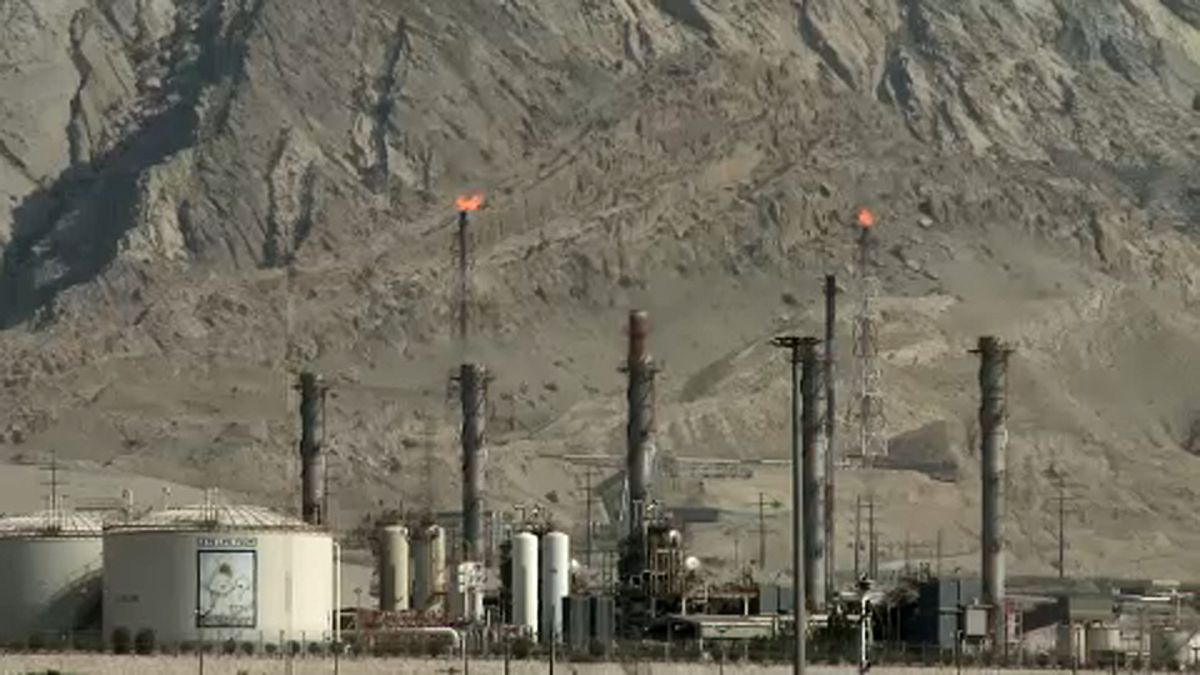The Trump administration is completing its reinstatement of all sanctions against Tehran that were lifted under the 2015 nuclear deal.
The United States has reimposed oil and financial sanctions against Iran in what the Trump administration says are the “toughest ever” on the government in Tehran. It means that the last sanctions that had been lifted under the 2015 nuclear deal have now been restored, the White House says.
“Sanctions are coming”, Donald Trump warned on Twitter, dressing up his foreign policy towards Iran as an episode of the TV fantasy “Game of Thrones”.
In May, Donald Trump announced that the US was pulling out of the accord. In a White House statement, the president has again called it a “horrible, one-sided” deal, which failed to block all paths to an Iranian nuclear bomb and “did nothing to address the regime’s malign actions across the Middle East and beyond”.
However, other parties to the deal – the UK, France, Germany, China and Russia, as well as the European Union – have vowed to keep the deal alive.
What effect will the latest sanctions have?
The latest sanctions cover Iran’s oil, shipping, banking and insurance sectors. Details are to be released by US Secretary of State Mike Pompeo and Treasury Secretary Steven Mnuchin on Monday.
They follow a previous batch imposed in August, and significantly turn up the pressure on Iran. Washington also promises measures to enforce them and target those who violate them.
Several countries which rely on Iranian oil imports are expected to be given temporary exemptions, to avoid destabilising global crude prices.
The European Union has been actively trying to encourage investors to maintain business ties with Iran to preserve the nuclear deal. It has promised to support European firms doing “legitimate business” with Iran via an alternative payment mechanism – or Special Purpose Vehicle (SPV) – to get around US penalties.
However, its effectiveness has been called into question – and there is plenty of evidence that many firms have succumbed to the US economic threat and pulled out of the country.
How has Iran responded?
Iran will continue to sell its oil and break sanctions reimposed by the United States on its vital energy and banking sectors, Iranian President Hassan Rouhani said on state TV on Monday.
“America wanted to cut to zero Iran’s oil sales… but we will continue to sell our oil… to break sanctions,” he said.
Tehran has remained defiant, saying it can weather the impact of the new sanctions.
Its anti-American, anti-Trump message was rammed home on Sunday at a government-organised rally in the capital, to mark the anniversary of the 1979 occupation of the US embassy.
The two countries have been enemies ever since the episode during which 52 Americans were held hostage for well over a year.
State media said millions of demonstrators turned out across the country: the figure cannot be verified.
Iran’s Supreme Leader also stepped up the rhetoric. Ayatollah Ali Khamenei said the move “disgraced” US prestige and liberal democracy, adding that the US was a weakened power with diminishing influence.
Iran’s military has been quoted as saying it will hold further exercises to demonstrate its capabilities.
How is the Iranian economy faring?
Iranians have been feeling the impact of sanctions put in place so far – and from an economy that was performing poorly even before they took effect.
Many people are also angry at their own government for its handling of a situation that has seen the currency collapse, bringing rising prices and higher unemployment.
Earlier this year there were large protests over the economy in several Iranian cities.
There are reports that the US threat to target those doing business with Iran has been having an effect.
Evidence suggests that foreign traders have been shunning Iranian products, such as carpets and caviar. Such products would otherwise be valuable but have been sold at knockdown prices.
What does the US want to achieve?
The sanctions have been one of the US president’s key campaign themes in the mid-term elections to Congress and state governorships.
Donald Trump has said his administration’s policy on Iran has already been making a difference, claiming that when he came to office Iran was about to “take over the Middle East”.
The Trump administration wants to force Iran back to the negotiating table to secure a better deal.
But the policy goes further: Secretary of State Mike Pompeo has said the sanctions are part of a “broader, far deeper” effort to change Iran’s behaviour. He has also said the US wants to “restore democracy there” and some analysts believe the unspoken aim is to seek regime change.
The strategy is also part and parcel of Donald Trump’s drive to dismantle the legacy of his predecessor Barack Obama. The 2015 deal was one of the former US president’s landmark achievements.
The nuclear accord secured billions of dollars in sanctions relief in return for curbing Tehran’s atomic programme. Supporters point out that it took years to negotiate and contained strict terms for verification to hold Iran to account.
Some analysts doubt that the US sanctions will force the Iranian government to change direction, despite the economic hardship.
Even moderates within the Iranian administration are said to favour standing up to Washington, and observers say the sanctions could strengthen Iran’s hardliners.
